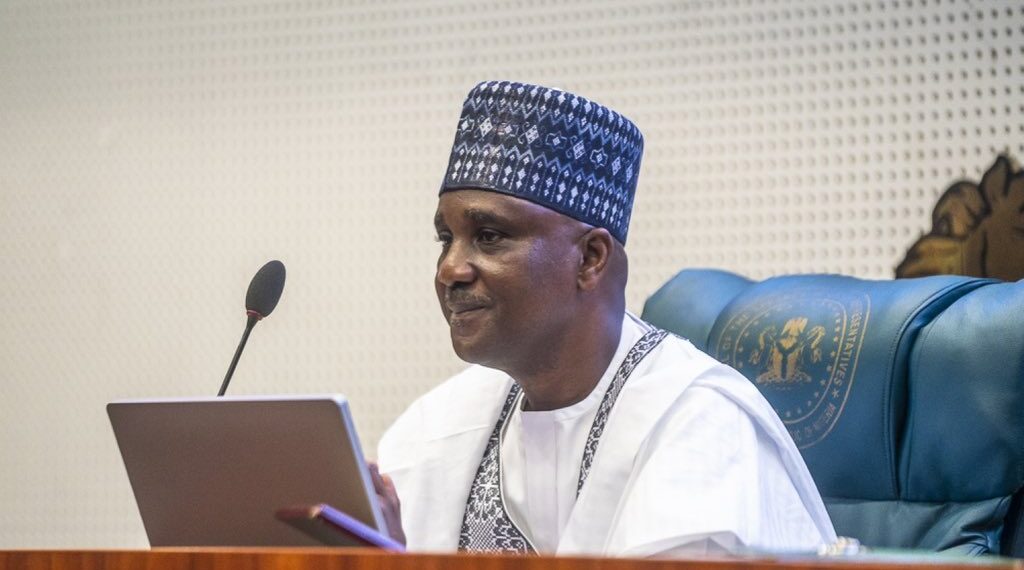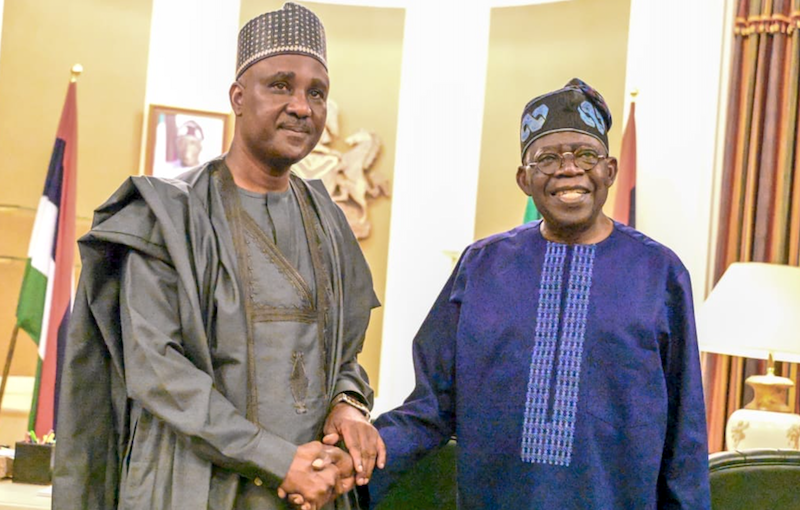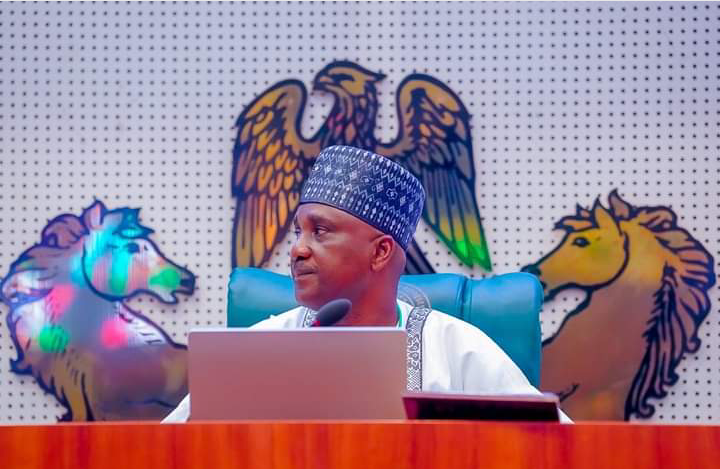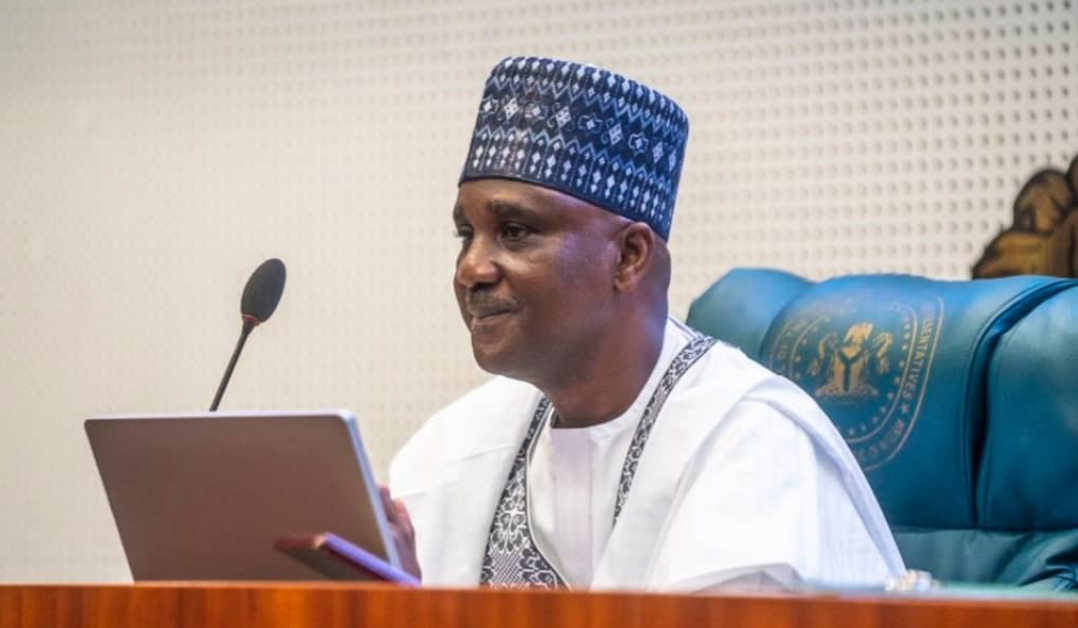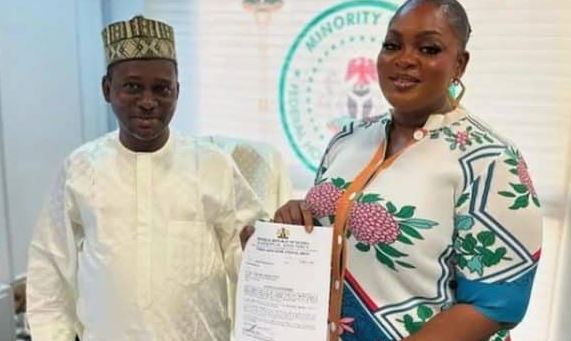The African Democratic Congress (ADC), has tackled the Speaker of the House of Representatives, Tajudeen Abbas over his recent remarks and retraction on Nigeria’s rising debt profile.
TheNewsGuru.com(TNG) reports that the House of Representatives Speaker was quoted to have raised an alarm over Nigeria’s rising debt profile, warning that it has surpassed the statutory ceiling and now poses a serious threat to fiscal sustainability.
However, Abbas represented by a member of the House, Babatunde Salam, while speaking on Monday at the opening of the 11th Annual Conference and General Assembly of the West Africa Association of Public Accounts Committees (WAAPAC) at the National Assembly, made a u-turn noting that he never called for a blanket condemnation of borrowing
He added that under the leadership of President Bola Tinubu, Nigeria has met its 2025 revenue target ahead of schedule, without reliance on borrowing
In response to the development, National Publicity Secretary of the ADC, Mallam Bolaji Abdullahi, said the Speaker’s initial admission that the country’s debt has crossed critical levels was a rare moment of honesty from within the ruling party.
The ADC further noted that his quick withdrawal reflects the growing culture of political cowardice and legislative complicity.
The party warned that, with unchecked borrowing and a National Assembly it called “the most compliant in recent history,” Nigeria’s future is being dangerously mortgaged with the full complicity of this National Assembly.
The full statement read: “The African Democratic Congress (ADC) had received with cautious optimism the recent remarks credited to the Speaker of the House of Representatives, Rt. Hon. Tajudeen Abbas, regarding Nigeria’s ballooning debt. The Speaker’s admission that the country’s debt-to-GDP ratio has not only crossed the statutory threshold, but now stands at a staggering 52 percent, was not only a rare moment of honesty but a validation of what the ADC and many patriotic Nigerians have long warned against: this government is mortgaging our future.
“However, our optimism was short-lived by the Speaker’s sudden recant of a rare demonstration of candour by a leader of the ruling party. Like a flame in the wind, the Speaker’s statement offered a momentary flicker of the truth, only to be quickly doused by political expediency. Rather than standing by his remarks and on the side of the people, the lawmaker chose to play safe and be politically correct. This, to us, is not only disappointing but troubling. If those in power cannot summon the courage to stand by the truth, even when it screams all around them, how can we expect them to act in the interest of the people?
Before proceeding on his vacation to Europe, President Bola Tinubu, just days ago, assured Nigerians that the era of borrowing was over.
“He claimed that revenue projections had been met and the nation would henceforth live within its means. But, in less than a week, this same government announced a fresh plan to borrow 1.75 billion dollars from the World Bank. It is against this backdrop of contradictions that the Speaker’s initial statement carried weight, and it is why his withdrawal rings louder than his words.
“What has stood out in the entire saga of unprecedented debt accumulation is the complicity of the 10th National Assembly, which, by every indication, has become the most compliant legislature in our recent history. The principle of checks and balances was not included in our Constitution for decoration, it exists to protect Nigerians from precisely this kind of unrestrained executive overreach. Yet today, what we witness is not legislative oversight, but legislative complicity. The National Assembly, instead of being a bulwark against excess, has become a conveyor belt for executive wishes.
“We wish to remind the Speaker and the APC-led administration that Nigeria’s debt crisis is not an abstract economic theory. It is a lived reality. Every naira borrowed without accountability translates into a child out of school and a hospital patient without care. The Speaker was right the first time — our debt is out of control, and our children’s future is being written in red ink.
“The ADC believes that Nigeria must return to a path of fiscal discipline, transparency, and responsible governance. Our party will continue to demand full public disclosure and parliamentary debate before any new borrowing is undertaken, measurable benchmarks for how loans are spent, and a long-term plan to reduce debt dependency through domestic resource mobilization and job creation.
“Let the record reflect that, when the opportunity came to speak truth to power, some chose silence, some chose survival, but the ADC chose to stand with the Nigerian people.”

